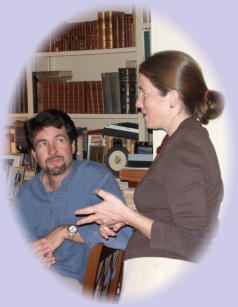

THE PATH TO HAPPY RELATIONSHIPS
Introduction
“A friend is someone who understands your past, believes in your future, and accepts you today just the way you are.” According to recent research, loving and close relationships, whether with partners, friends or family, are important to our happiness. Humans evolved as social animals. The need for others serves the survival of our species, so the drive to connect is primeval and deep. On top of that, our economic system is based on humans cooperating in various ways – at work, raising children, even to have fun. Our culture reinforces the belief that we need a partner to be happy. The media feed the unattainable fantasy that there is one right person out there who will provide all of the love, acknowledgement, and stimulation we desire. This perfect partner will enjoy all the same activities we do, and make us feel complete. When this unreasonable expectation isn’t met, disappointment follows. Relationships can bring great pleasure, but when they are not functioning well, they can be a source of great pain. The good news is there are many ways to strengthen and improve our relationships.What Do We Really Want from Each Other?
We want to feel heard, understood, validated, and respected without feeling judged. We want to feel valued, and that we are equal in worth to others. We want to experience the pleasure of loving others, and of being loved. In our closest relationships, we want to be loved unconditionally you – loved for who we truly are, not for what we are doing. We want to be protected from our fear of being alone.Common Causes of Relationship Problems
We give up who we are to please the other person. We cling to unrealistic expectations. We look to others to provide our sense of worth. We try to change the other person. We don’t change the one thing we can change you – ourselves. We can change our behaviors. We can change what we believe about our relationships, and what we want from them. By changing our beliefs, we can change our feelings. We think we all see the world in exactly the same way, and show love the same way. We believe that other people cause our feelings you – they make us happy or unhappy, they make us love them or make us angry. We fail to take responsibility for our own feelings. We treat those we care about most the least lovingly. We stay mired in unfulfilling relationships, hoping to make the other person change.What Can We Change in Our Relationships?
We can change ourselves – our thoughts, beliefs and actions. We can recognize everyone is different. Because we assume everyone sees the world in the same way, we believe that in a similar circumstance, other people would feel the way we feel. But in truth, each of us has our own unique view, our own filters through which we interpret our experiences and create our perceptions of reality. Research focusing on eyewitness accounts revealed that people who observe the exact same event report “seeing” different things. So even if we have been in the same situation as others, their experience and feelings are likely to be different, because their perspectives are different. Furthermore, we filter our perceptions of reality through our beliefs about the world, ourselves, and what things mean. Our beliefs are uniquely our own, as we created them to make meaning out of our experiences, something we have been doing since our infancy. We forget that other people observe a different reality, and their beliefs about how the world (including relationships) operates are different from ours. For example, I might be hurt by a remark like “Hey, get over yourself.” I might believe that the speaker is irritated with me, that he doesn’t like me, or that she is mean. That would lead to me feeling hurt, rejected, and maybe even angry. A person interpreting it as friendly teasing might believe the comment was a sign of being accepted and liked, and would therefore feel pleased by the same remark. Especially when you are feeling hurt or angry, it is a common error to believe people intended to offend you. Most of the time, their actions weren’t directed at you – you aimed them at yourself. We compound our errors by believing our perspectives and beliefs are true and right. It’s when we remember our uniqueness, and we are curious about what others tell themselves about their experiences that we avoid making incorrect assumptions. Since our feelings are the result of what we tell ourselves about what happened to us, rather than the actual event, we can change how we feel by choosing different beliefs and telling ourselves a different story about what we perceived. Instead of believing “If you loved me, you would … [do as I wish],” we could choose to believe, “I know you love me, and not greeting me at the door with a kiss isn’t about me at all.”








Molly's Short List
How to Improve Your
Relationships
Be yourself. Accept other people as they are. Listen without judgment, hear their perspective and beliefs. (This means letting go of right and wrong, and accepting that it is just different) Share your perspectives and beliefs respectfully. Ask for what you want without expecting to get it. Accept what you get. Be grateful. Let other people know what they add to your life.







Choose to be happier!
You have found the place
to learn what YOU can do
to have a happier,
more fulfilling life!


© Molly L. Stranahan, Psy.D. 2022


Subscribe to our Newsletter































